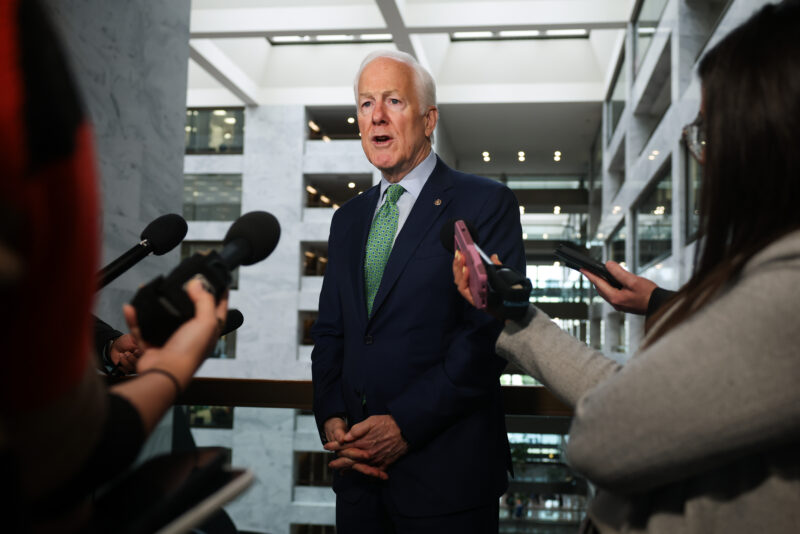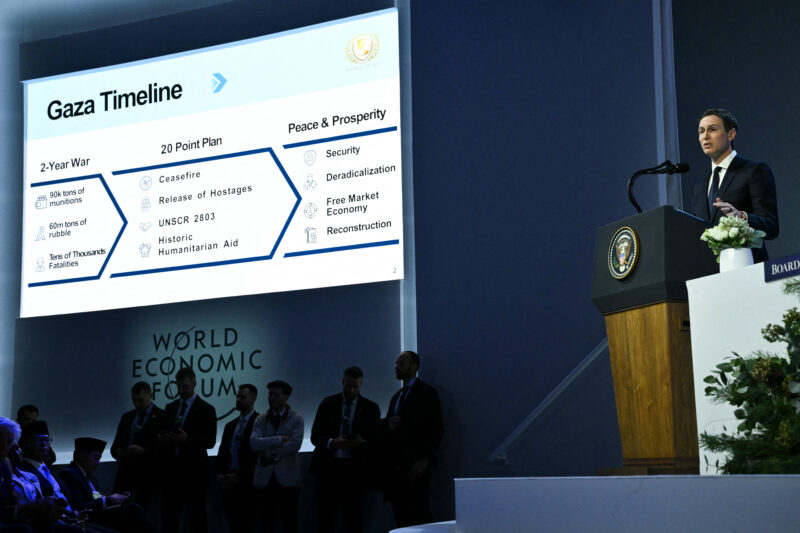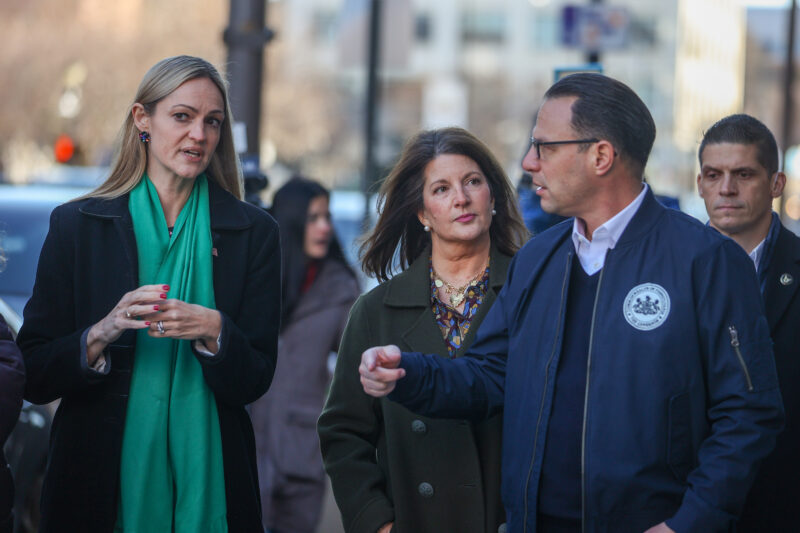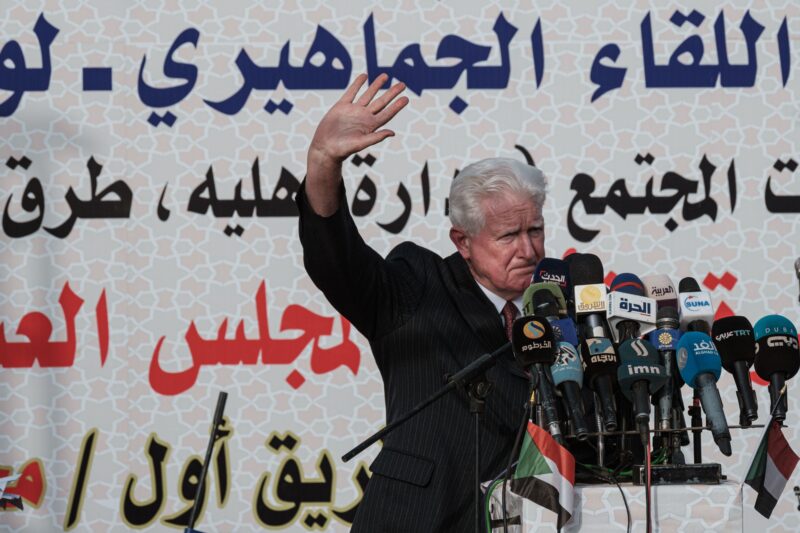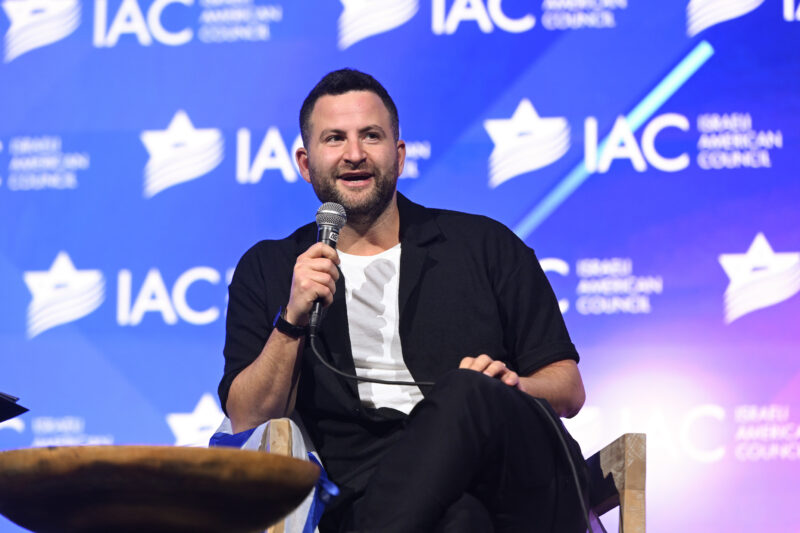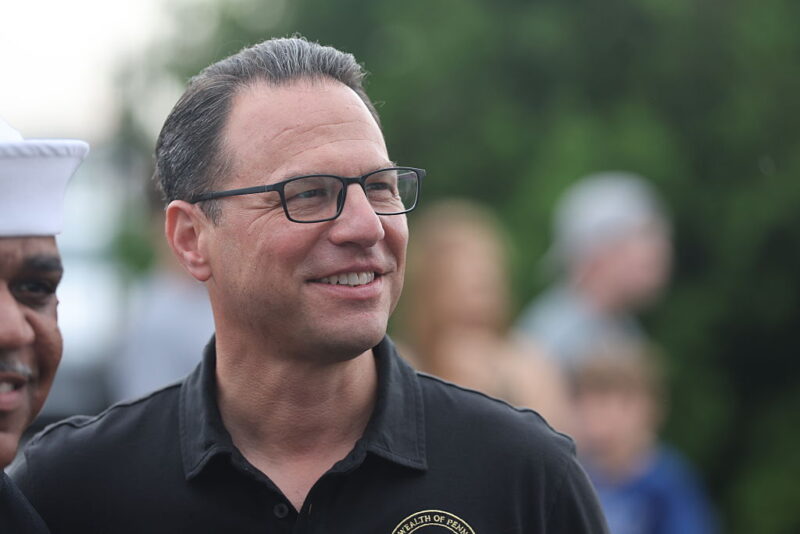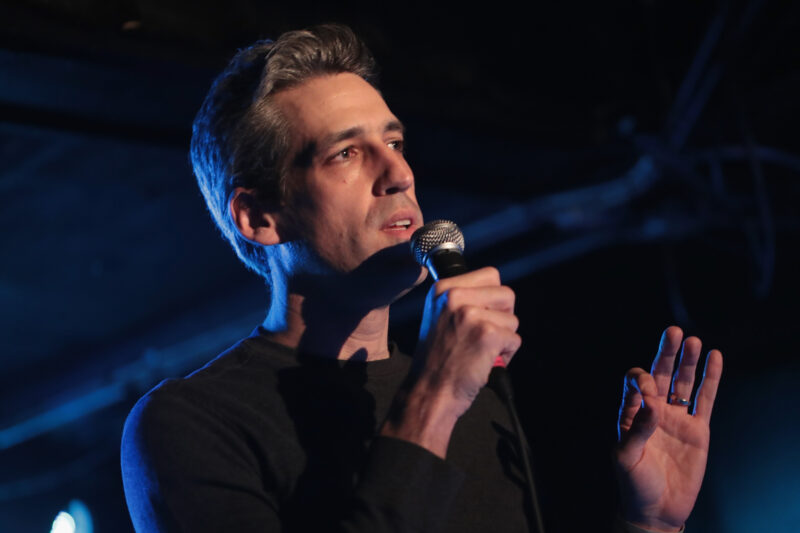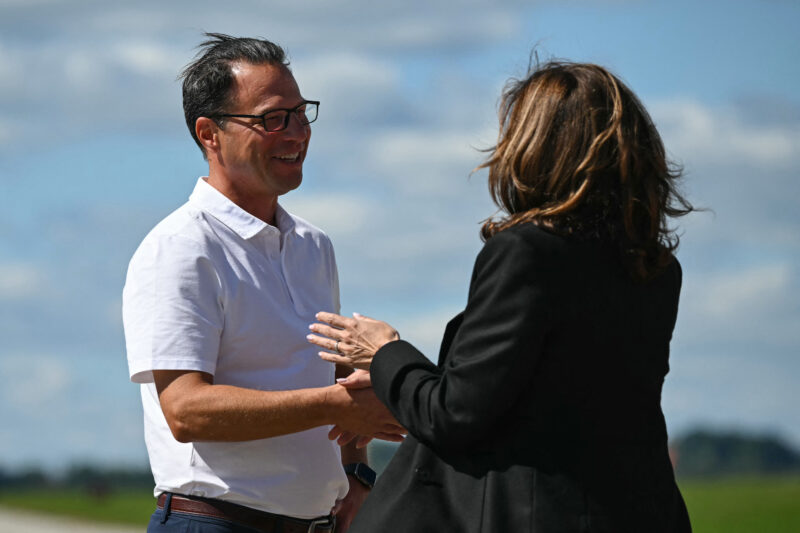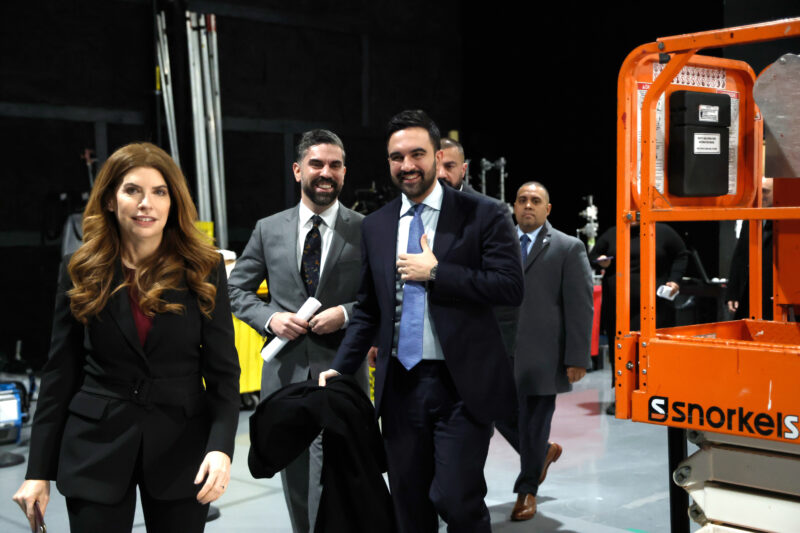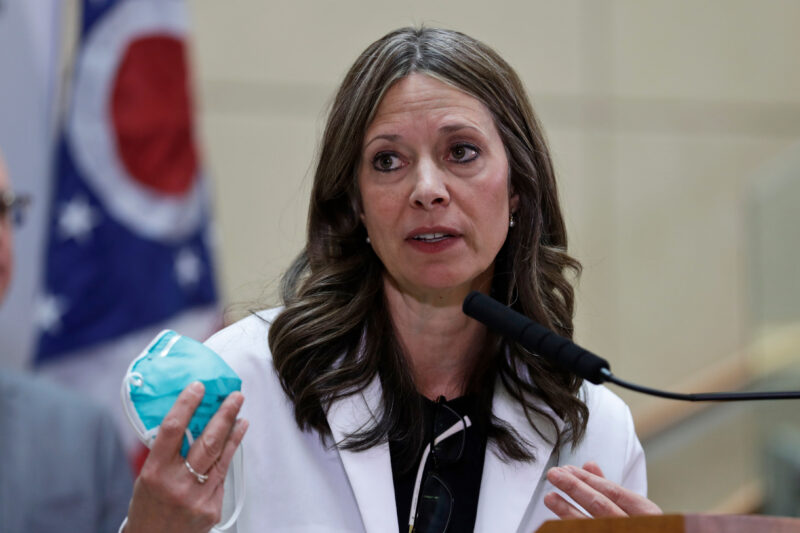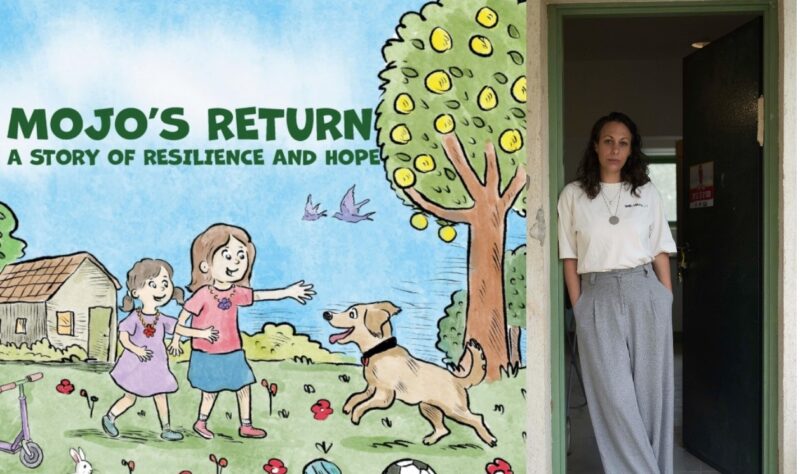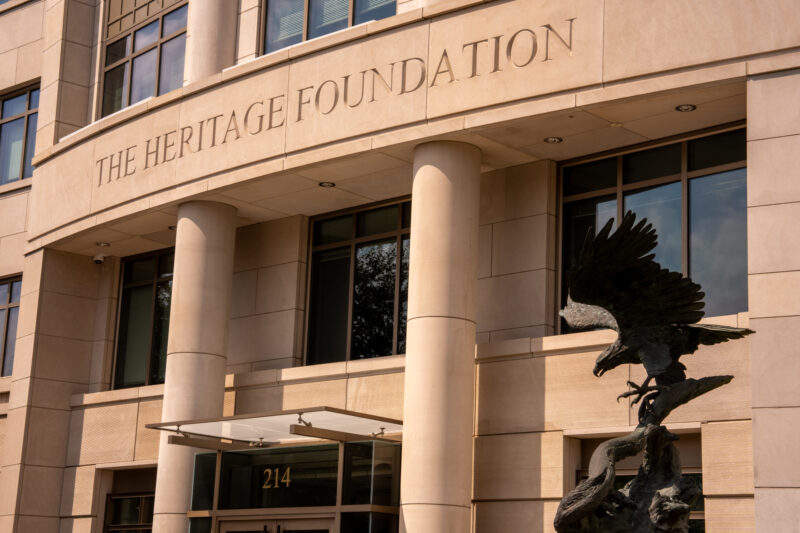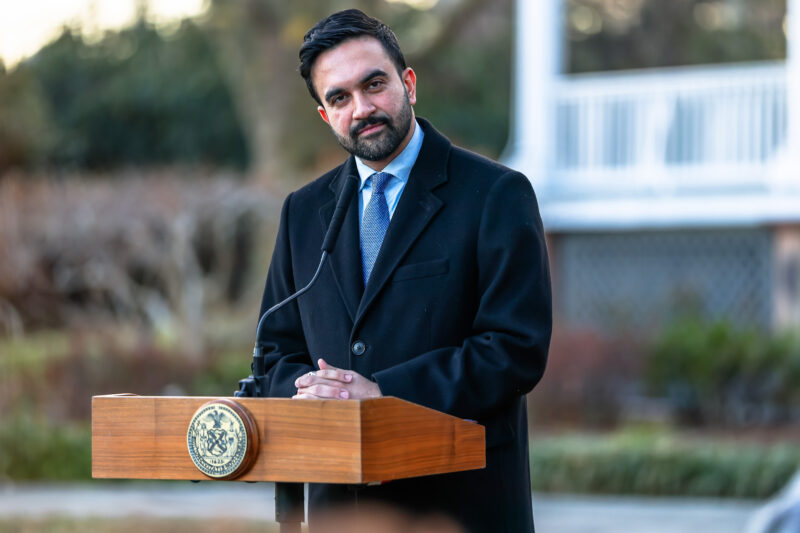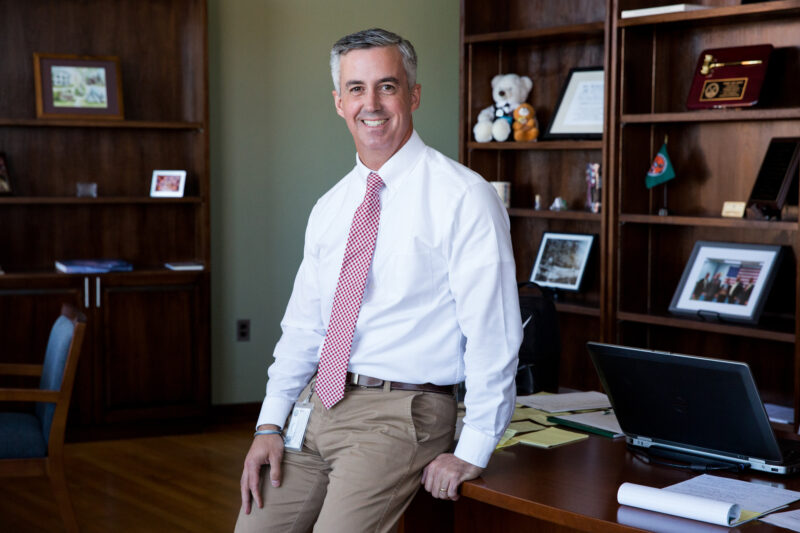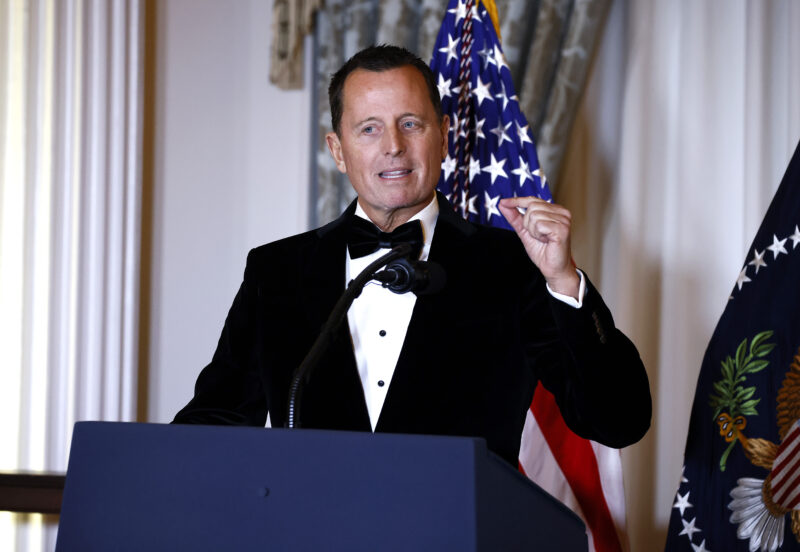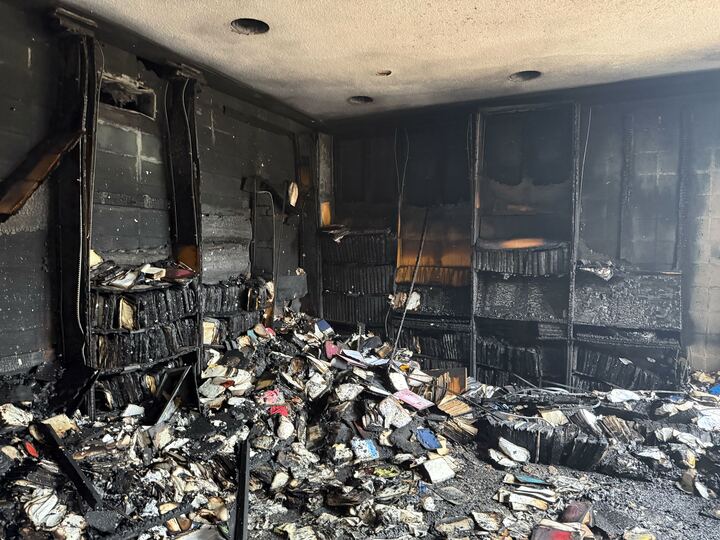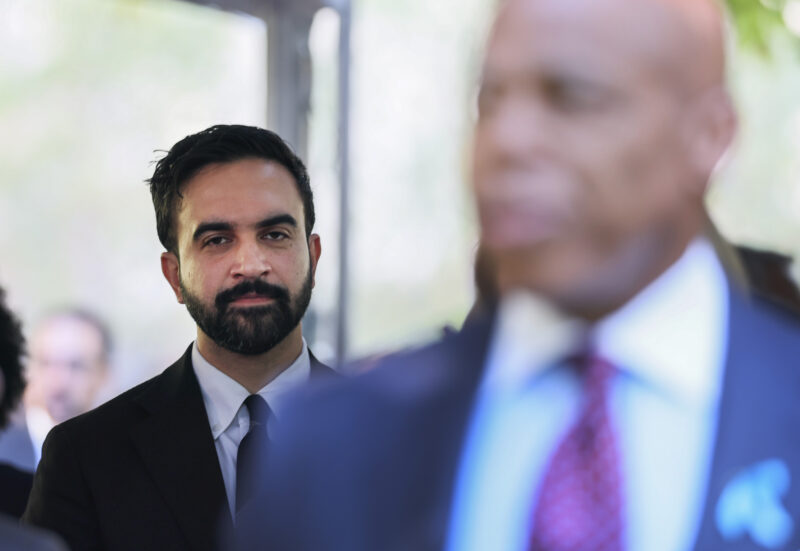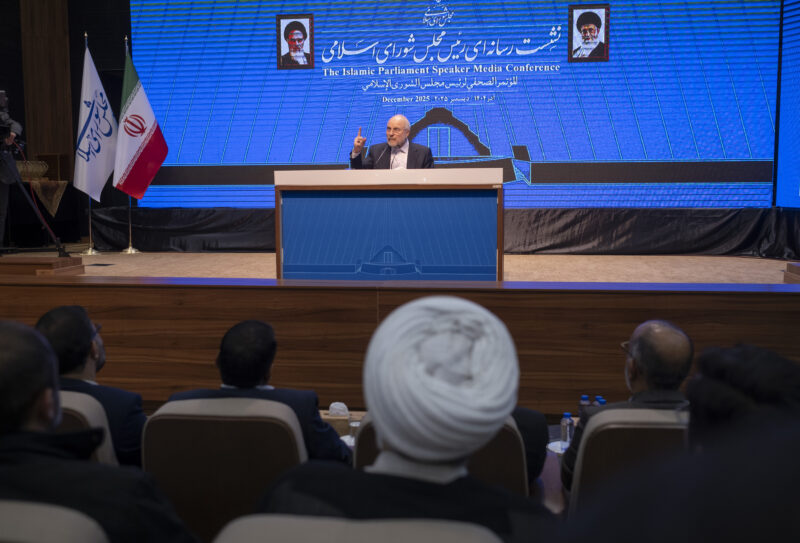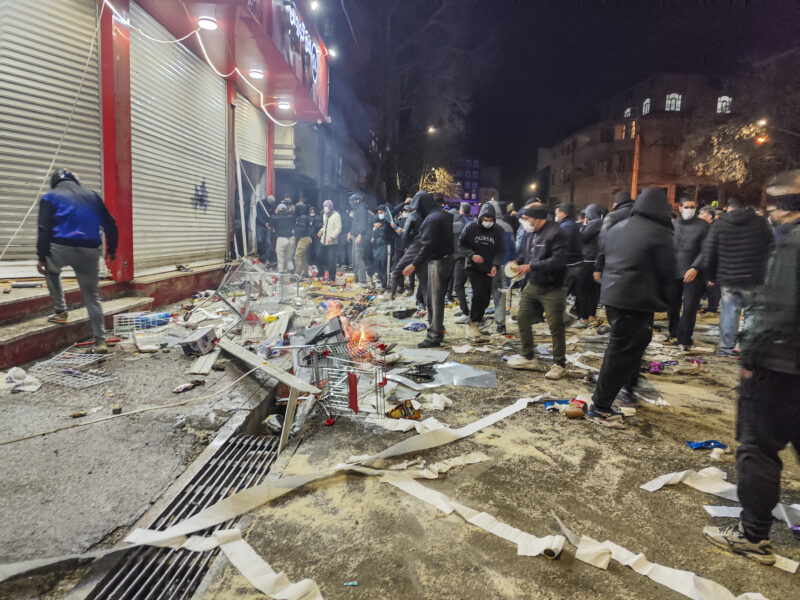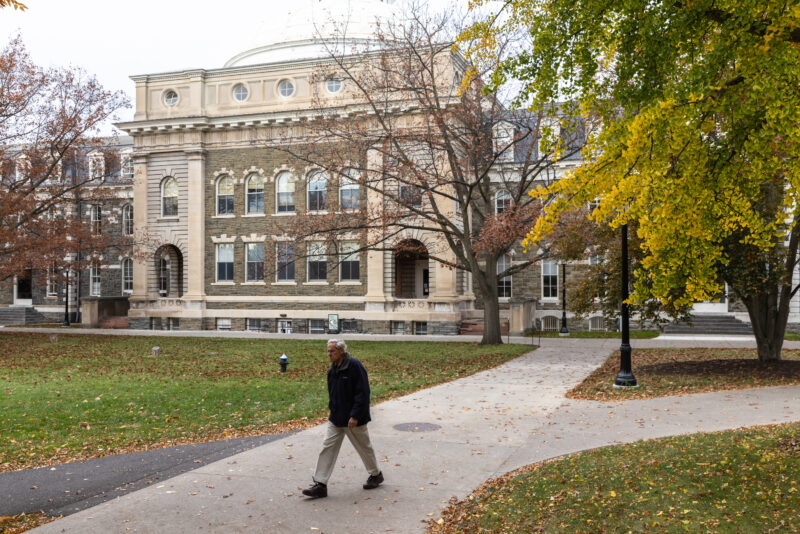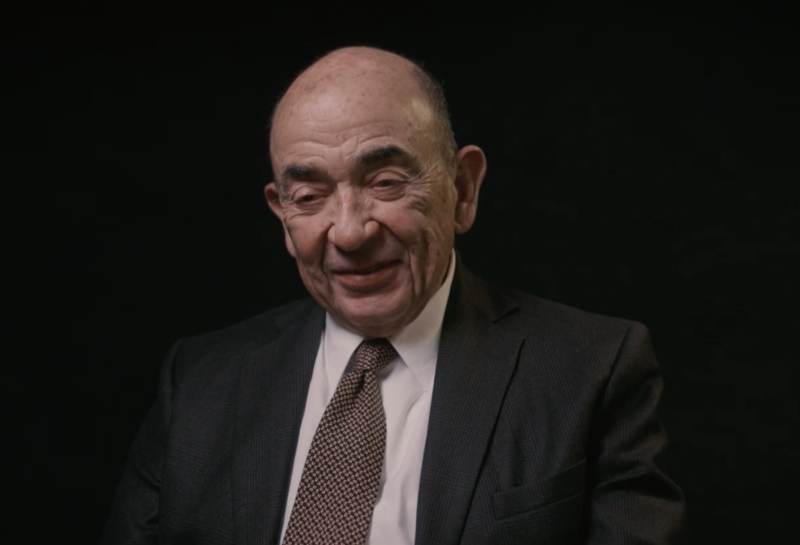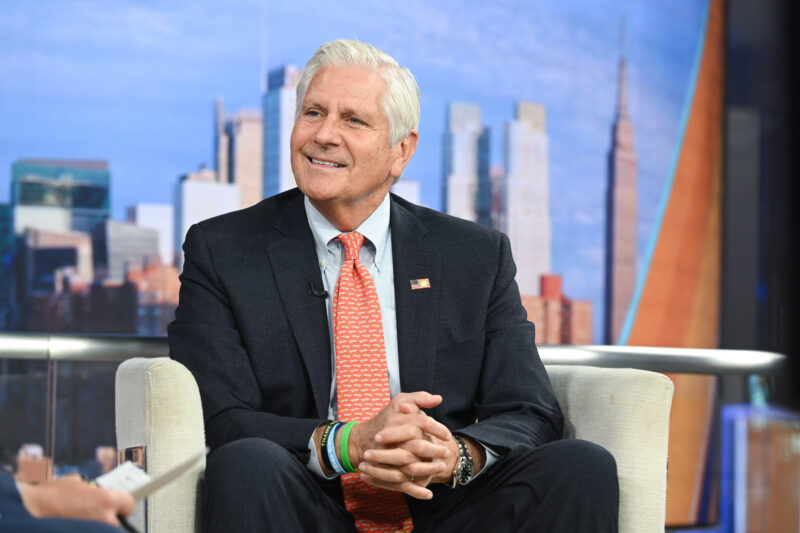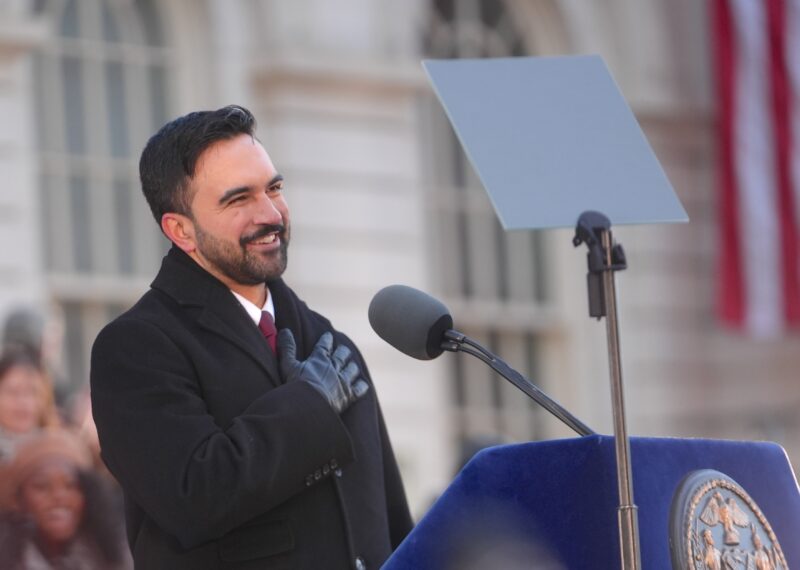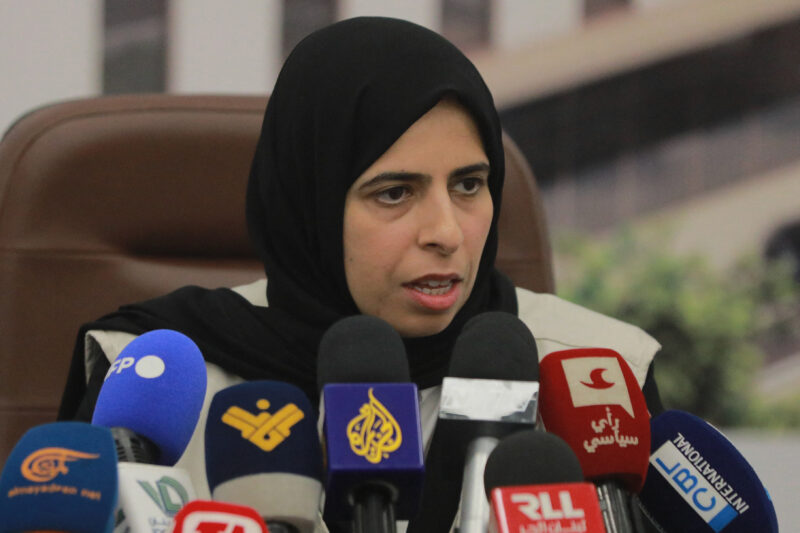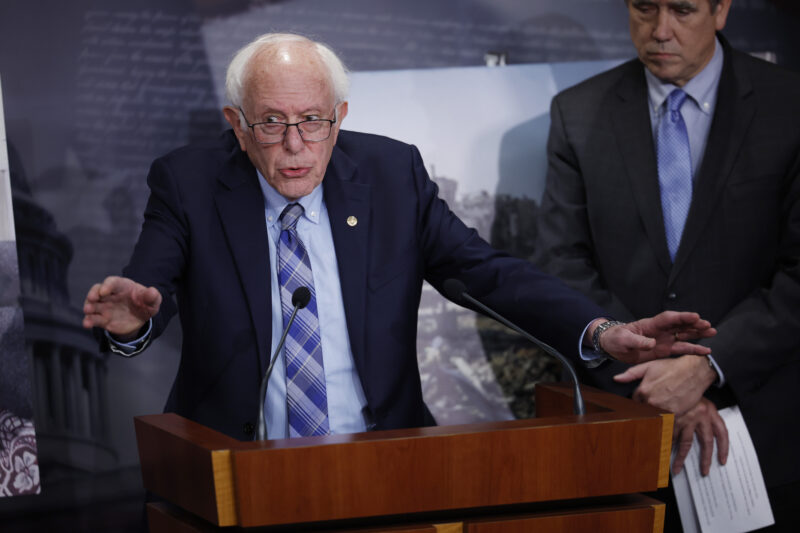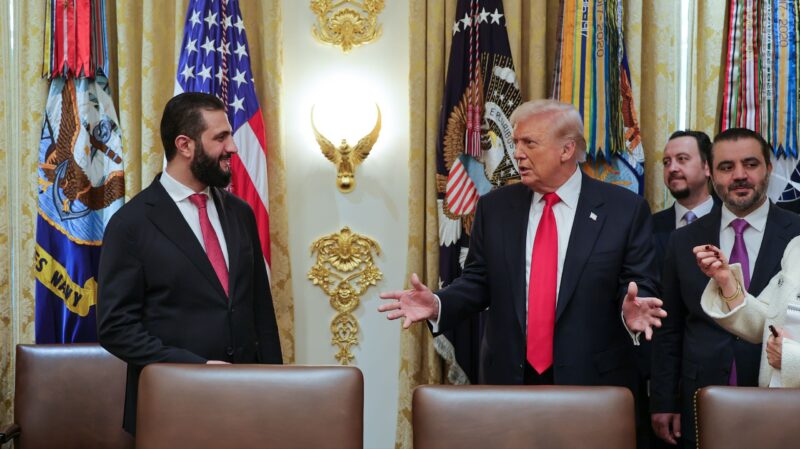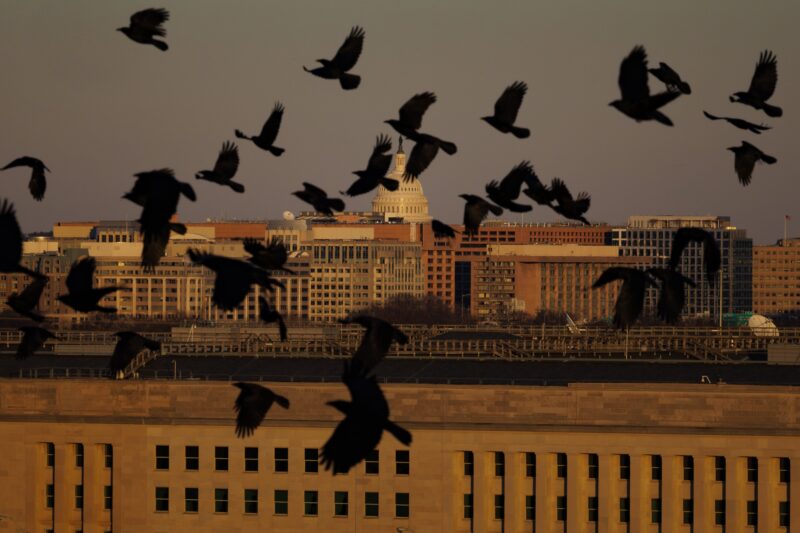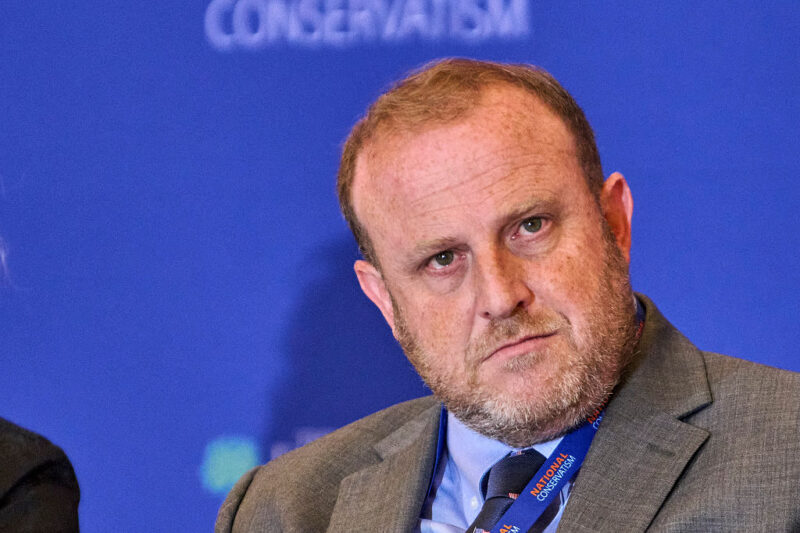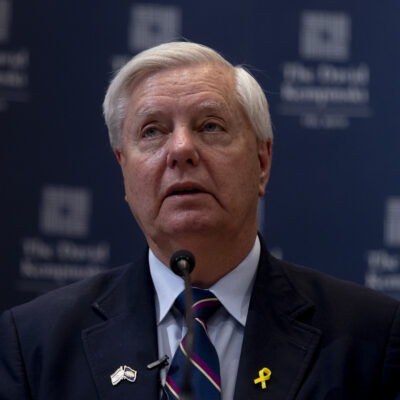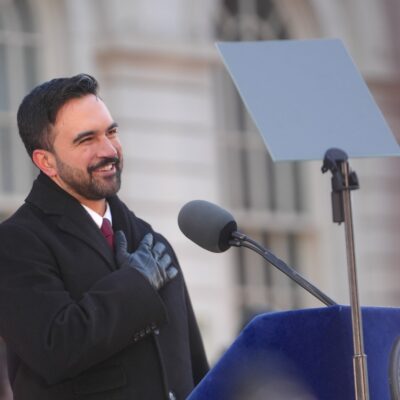
Daily Kickoff: The kids are not alright
Good Friday morning.
In today’s Daily Kickoff, we look at worsening antisemitism on college campuses, from threats at Berkeley to a congressional roundtable in Washington featuring firsthand testimony of campus antisemitism yesterday. Also in today’s Daily Kickoff: Gov. Kathy Hochul, Bari Weiss and Justin Amash.
For less-distracted reading over the weekend, browse this week’s edition of The Weekly Print, a curated print-friendly PDF featuring a selection of recent Jewish Insider, eJewishPhilanthropy and The Circuit stories, including: John Avlon pivots from punditry to politics; After four months of war, how much of Gaza’s terror tunnel network remains?; Jordan’s queen downplays role of Oct. 7 as cause of the war in Gaza. Print the latest edition here.
More than 100 people were killed when a crowd converged on an aid convoy in the Gaza Strip on Thursday and in a nearby confrontation between IDF soldiers and Palestinian men, in what an Israeli official with knowledge of the incidents described as a “completely unprecedented” set of events. “We’ve seen big groups of people running toward aid convoys, but nothing on this scale,” the official told Jewish Insider Executive Editor Melissa Weiss.
The convoy that came under the swarm of people was, the official described, “a very properly coordinated aid convoy with local contacts.” As the convoy passed through Gaza City early Thursday morning, thousands of people began to converge on the convoy.
“They literally physically trampled each other and ran over each other and beat each other,” the official continued. “And then Hamas started shooting at them.” The terror group aims to resell some of the convoy’s goods at a high markup, the official said.
“We did not fire at the humanitarian convoy, we secured it,” IDF spokesman Rear Adm. Daniel Hagari emphasized in a briefing yesterday evening. “The tanks that were there to secure the convoy saw the Gazans being trampled and cautiously tried to disperse the mob with a few warning shots,” Hagari said. “You can see [in a video released by the IDF] how cautious they were when they were backing up. They were backing up securely, risking their own lives, not shooting at the mob.”
Nearby, a group of IDF soldiers guarding the convoy opened fire on a group of men approaching the battalion. First, the official said, the IDF troops fired in the air to warn the men off, but the men continued running toward the battalion.
An estimated 10 Palestinians were killed in the confrontation with Israeli troops, according to the IDF, and the rest of the casualties were caused by the stampede and confrontation near the convoy.
The State Department said it was working to determine exactly what happened. “I don’t want to draw any conclusions about what appears [to have] happened, because I think it’s too early to say. Oftentimes, the early accounts in these situations have turned out to be incorrect,” department spokesperson Matthew Miller said on Thursday. Several mainstream international news outlets attributed responsibility for the over 100 deaths in the incident to Israel, citing Palestinian accounts alleging that the chaos ensued after the IDF opened fire on the food line.
“There are conflicting accounts and we don’t know the ground truth of what happened,” said Miller. “We have been in touch with the Israeli government since early this morning and understand that an investigation is underway. We will be monitoring that investigation closely and pressing for answers.”
President Joe Biden said on Thursday that the incident will complicate efforts to reach a cease-fire, which was already looking increasingly unlikely despite his optimistic comments earlier in the week that a deal could be reached.
The incident underscores the dire situation in Gaza, where Hamas, despite facing significant military defeats, continues to disrupt efforts to deliver aid. A Wall Street Journal report published this week said that Oct. 7 mastermind Yahya Sinwar, believed to be hiding in a Hamas tunnel surrounded by Israeli hostages being used as human shields, had the ultimate goal “for Hamas to emerge from the rubble of Gaza after the war, declare a historic victory by outlasting Israel’s firepower, and claim the leadership of the Palestinian national cause.”
Meanwhile, the U.S. blocked a U.N. Security Council resolution introduced by Algeria hours after the attack that sought to blame Israel for the incidents in Gaza City earlier Thursday.
committee credibility
University antisemitism task forces feature much talk, minimal action so far

In the aftermath of a surge in antisemitism that erupted following the Oct. 7 Hamas terror attacks in Israel, top universities including Harvard, Yale, Stanford, Columbia, the University of Pennsylvania and Northwestern announced the creation of new bodies tasked with studying antisemitism on campus and identifying how to address it. But nearly five months after the environment for Jewish students on these campuses began to rapidly deteriorate, questions remain over the efficacy and mandate of such groups. They will also face the thorny issue of campus free speech as they delve into questions about what, exactly, constitutes antisemitism on campus, Jewish Insider’s Gabby Deutch and eJewishPhilanthropy’s Haley Cohen report.
All talk: At Columbia University, Shai Davidai, an assistant professor in the business school, said he doesn’t have confidence that a newly created antisemitism task force can succeed unless the faculty on the committee changes to include more Zionist and Israeli voices. “At universities, if you want to make sure something doesn’t happen, you set up a task force,” Davidai continued. “The task force at Columbia has done absolutely nothing. They just talk.”
Critics on board: After Northwestern University announced in November that it would create an antisemitism task force, 163 faculty and staff members at the university wrote a letter to President Michael Schill saying they were “seriously dismayed and concerned” by the announcement, raising concerns that the task force’s work would challenge “rigorous, open debate.” Three of the signatories of that letter — including Jessica Winegar, a Middle Eastern studies professor and vocal proponent of boycotts of Israel — were then named to the task force, which will also focus on addressing Islamophobia.
Red tape task force: “If you really want to fix the problem, why conflate it with other issues that are going to prolong trying to find a solution to it?” Mike Teplitsky, a Northwestern alum and the president of the Coalition Against Antisemitism at Northwestern, said of the joint Islamophobia focus. “I would call it a bureaucratic distraction from trying to fix the problem.”








